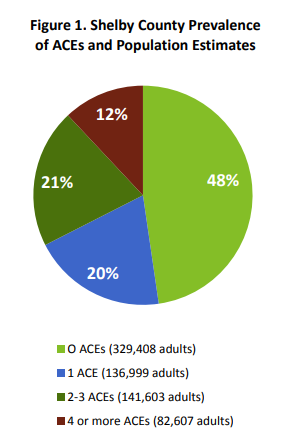 SCS
SCS
Tennessee Gov. Bill Lee announced last month a proposal to create a trust fund for mental health support for K-12 students.
Upon approval of the governor’s proposed budget, $250 million in state money would be put into the fund initially, and over time, the governor anticipates the fund growing as a result of private donations.
Lee said the funds would “support the growth and placement of mental health support services in our most at-risk schools.”
One in five children has a mental health diagnosis in a given year, the governor said at the time, and more than 60 percent of children who receive mental health support do so in school.
Additionally, the youth suicide rate is the second-leading cause of death among young people ages 10 to 24 in the state.
“Scores of teachers and principals, as well as our education commissioner, have pleaded for reinforcements from the state to help schools tackle mental health and other challenges that students bring with them into the classroom,” Lee said.
More Support
Shawn Page, chief of academic operations and school support for Shelby County School, applauds the governor’s proposal of a mental health trust fund. He said “our district has quite a bit of need around that area. We could always benefit from more resources.”
“Many of our children experience what’s called adverse childhood experiences,” Page said. “The things we hear every day on the news, from murder to other things, are what our children experience in the community and the issues our students bring to school with them. Every night we see some of the trauma that our students experience.”
With more funding for mental health and behavior services, Page said SCS would be able to invest in more personnel to support students.
“What we hear mostly from our schools is that they would like more support in the form of people,” Page said. “Teachers have a very difficult job. They’re on the front lines every day and the first contact for these students. They need extra support.”
Page also said there is a need for additional specialized staff to help students in crisis.
“When you have adequate staffing, there’s more of a probability that there’s going to be somebody who’s able to make individual connections to students,” Page said. “The thing that changes behavior and supports children is not creating another system, it’s touch and human connection.”
Currently, Page said SCS has three layers of support in place in all schools to address students’ mental health, behavior, and emotional needs.
The “first lines of defense” are the guidance counselors, Page said. Each school has at least one full-time certified guidance counselor, while some schools, depending on need and size, have more. They provide students with individual counseling, group counseling, and social emotional learning (SEL) support.
SEL helps students to understand and manage emotions, set and achieve positive goals, feel and show empathy for others, establish and maintain positive relationships, and make responsible decisions.
[pullquote-1]
If the district were to get more funding, Page said SCS would also look to purchase an SEL curriculum that all schools could use. The curriculum would serve as a resource for schools to guide how to address particular issues, such as bullying or drug use.
“The big buzzword right now across the nation in educational circles is social emotional learning” Page said. “For years, the big focus has been on academics, scores, and state testing. In the past few years, there’s been more conversations around mental health, emotional learning, and behavioral support. Children can’t learn unless they are supported and healthy. Things are shifting to look at the whole child, rather than academics, academics, academics.”
The next level of support available to students in every school are social workers, who Page said provide a “deeper level of mental support” for students. For example, social workers would work with students with suicidal ideation or who have experienced extreme trauma.
Finally, each school has a behavioral specialist who focuses on the behavior of students by helping them resolve conflict and de-escalating situations.
Because many SCS students have been exposed to some form of adverse experience Angela Hargrave, SCS’ executive director of student equity, enrollment, and discipline, said it’s important for teachers to understand the effects of those experiences and how to respond. Hargrave said SCS began providing Adverse Childhood Experience (ACES) awareness training for all staff this school year.
The training versed staff in how ACES impacts brain development and children’s behavior as a result. The training also teaches staff how to respond to students who’ve had adverse experiences and how to create a learning environment that mitigates the negative impact of those experiences.
“While we have mental health centers and support, we also wanted to equip the teachers in the classrooms with as much information and tools as we could,” Hargrave said.
“When you turn on the news and you see all of the crime happening, these are our children and our families. And that’s not necessarily the case in other districts, but it is here. So if you see an incident that happened in the community where children are involved, those children don’t forget about that and come to school and everything is okay. They bring that with them. We definitely recognize that and have to understand that.”
Effects of Trauma
The Adverse Childhood Experiences Awareness Foundation released a report in 2015 citing that 52 percent of adults in Shelby County report having experienced at least one ACE in their life.
An ACE can include anything from witnessing or experiencing abuse, neglect, or domestic violence, to alcoholism in the family.
 ACES Awareness Foundation
ACES Awareness Foundation
Based on a survey of 1,500 Shelby County residents, the report concluded that the most common adverse childhood experiences in the county are substance abuse, emotional abuse, and violence between adults in the home.
A little over a quarter of respondents said they witnessed someone being shot or stabbed in their community while growing up, while one in five said they did not feel safe in their neighborhood growing up.
Child psychologist and University of Memphis professor Kathryn Howell said exposure to trauma, such as witnessing or being a victim of violence at home or in the community, can cause developmental problems in children. These problems could cause trouble with basic functions such as decision making or paying attention.
Howell said trauma can also affect hormones that influence behavior and responses to everyday life situations.
In addition to the physical consequences of trauma, Howell said trauma can also influence the way children relate to others and view the world.
“We see in research that kids, who are exposed to trauma, when they’re presented with a neutral stimulus, they’re more likely to view it as threatening or harmful,” Howell said. “Trauma affects the world and how they view and interact with the people around them.”
Howell said trauma can also lead to mental health issues such as depression, anxiety, and ADHD.
“Many of these diagnoses are rooted in trauma,” she said. “There are just different ways that children react. They show sadness or aggression which oftentimes ties back to some type of adversity that they’ve experienced.”
[pullquote-2]
Howell said instability, such as limited access to food, can also affect a child’s mental well-being. For example, a child living in a food desert might have “uncertainty about their basic safety.”
“What we know about any mammal, not even just humans, is if their basic needs aren’t being met, then they won’t be able to function and thrive,” Howell said. “So if you’re hungry and you don’t know where your next meal is going to come from, then your ability to do well in the classroom is significantly hindered. It’s not that kids aren’t wanting to learn or lazy or difficult, but they aren’t being cared for enough.”
Howell heads the U of M’s REACH (Resilience Emerging Amidst Childhood Hardships) lab. The lab examines ways in which intervention can “alter the grim trajectory” a child might be on after experiencing a trauma.
“Kids aren’t able to fix these problems by themselves, so there has to be intervention by adults in the community and at schools,” Howell said. “It’s important that we acknowledge that this is a significant problem and it’s something that’s going to require all of our efforts to address.”